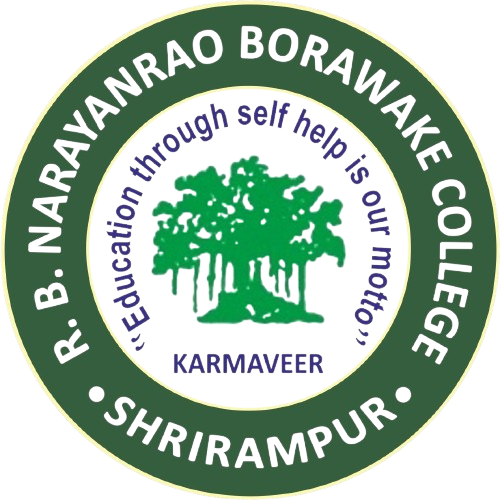INTERNAL QUALITY ASSURANCE CELL (IQAC)
The prime task of the IQAC is to develop a system for conscious, consistent and catalytic improvement in the overall performance of institutions. For this, during the post-accreditation period, institutions need to channelize its efforts and measures towards promoting the holistic academic excellence including the peer committee recommendations.
IQAC-VISION
To ensure quality culture as the prime concern for the Higher Education Institutions through institutionalizing and internalizing all the initiatives taken with internal and external support.
OBJECTIVES:
- The primary aim of IQAC is
STRATEGIES:
- IQAC shall evolve a mechanism and procedures for:
- Ensuring timely, efficient, and progressive performance of academic, administrative, and financial tasks.
- Relevant and quality academic/research programmes.
- Equitable access to and affordability of academic programmes for various sections of society.
- Optimization and integration of modern methods of teaching and learning.
- The credibility of the assessment and evaluation process.
- Ensuring the adequacy, maintenance, and proper allocation of support structure and services.
- Sharing of research findings and networking with other institutions in India and abroad.
FUNCTIONS OF IQAC
- Some of the functions expected of the IQAC are:
- Development and application of quality benchmarks.
- Setting parameters for various academic and administrative activities of the institution.
- Facilitating the creation of a learner-centric environment conducive to quality education and faculty maturation to adopt the required knowledge and technology for participatory teaching and learning process.
- Collection and analysis of feedback from all stakeholders on quality-related institutional processes.
- Dissemination of information on various quality parameters to all stakeholders.
- Organization of inter and intra-institutional workshops, seminars on quality-related themes, and promotion of quality circles.
- Documentation of the various programmes/activities leading to quality improvement.
- Acting as a nodal agency of the Institution for coordinating quality-related activities, including adoption and dissemination of best practices.
- Development and maintenance of institutional database through MIS for the purpose of maintaining/enhancing institutional quality.
- Periodical conduct of Academic and Administrative Audit and its follow-up.
- Preparation and submission of the Annual Quality Assurance Report (AQAR) as per guidelines and parameters of NAAC.
BENEFITS:
- IQAC will facilitate / contribute to:
- Ensure clarity and focus in institutional functioning towards quality enhancement.
- Ensure internalization of the quality culture.
- Ensure enhancement and coordination among various activities of the institution and institutionalize all good practices.
- Provide a sound basis for decision-making to improve institutional functioning.
- Act as a dynamic system for quality changes in HEIs.
- Build an organised methodology of documentation and internal communication.
Composition of Internal Quality Assurance Cell (IQAC)
| Sr. No. | Name of the Member | Designation |
|---|---|---|
| 1 | Prof. Dr. P.V. Badadhe | Chairperson |
| 2 | Hon. Meenatai Jagdhane | Member (Management Representative) |
| 3 | Hon. Prakash Nikam Patil | Member (Industrialist) |
| 4 | Dr. B.B. Kale | Member (Employer Representative) |
| 5 | Dr. R.B. Jagdhane | Member (Society Representative) |
| 6 | Dr. N.C. Pawar | Member (Alumni Representative) |
| 7 | Prof. Dr. A. K. Wavare | External Member |
| 8 | Prof. Dr. K.M. Ambade | External Member |
| 9 | Dr. A.N. Jagdale | Member (Vice Principal) |
| 10 | Prof. Dr. A.S. Dalwi | Member (Vice Principal) |
| 11 | Prof. Dr. S.N. Shelke | Member (Teacher Representative) |
| 12 | Dr. K.W. Pawar | Member (Teacher Representative) |
| 13 | Dr. S.N. Pawar | Member (Teacher Representative) |
| 14 | Dr. A.S. Mahure | Member (Teacher Representative) |
| 15 | Dr. S.B. Gaikwad | Member (Teacher Representative) |
| 16 | Mr. R.R. Jagtap | Member (Teacher Representative) |
| 17 | Dr. S.K. Khilare | Member (Teacher Representative) |
| 18 | Dr. M.E. Auti | Member (Teacher Representative) |
| 19 | Dr. Y. M. Randhawane | Member (Stakeholder Representative) |
| 20 | Mr. K.M. Jadhav | Member (Office Superintendent) |
| 21 | Miss Raut Pranita Sunil | Member (Student Representative) |
| 22 | Dr. D.B. Bankar | IQAC Coordinator |
NAAC Certificates
Core Values
IQAC Activities/ IQAC Initiatives
Best Practices
Awards
AISHE Certificates
Annual Quality Assurance Reports
IQAC-Criteria-Supporting Documents
Criteria-I
| Metric No. | Metric Name | Supporting Documents |
|---|---|---|
| 1.1.1 | Curricula developed and implemented have relevance to the local, national, regional, and global developmental needs which are reflected in Programme Outcomes (POs), Programme Specific Outcomes (PSOs), and Course Outcomes (COs) of the various Programmes offered by the Institution. | Additional Information View PDF |
| 1.3.4 | Number of students undertaking field work/projects/internships/student projects. | Additional Information View PDF |
Criteria-II
| Metric No. | Metric Name | Supporting Documents |
|---|---|---|
| 2.6.1 | Programme Outcomes and Course Outcomes for all Programmes offered by the institution are stated and displayed on the website and communicated to teachers and students. | Additional Information View PDF |
| 2.3.1 | Student-centric methods such as experiential learning, participative learning and problem-solving methodologies are used for enhancing learning experiences. | Additional Information View PDF |
Criteria-III
| Metric No. | Metric Name | Supporting Documents |
|---|---|---|
| 3.2.4 | List of funding agencies for research National and state level Research Funding agencies | Additional Information View PDF |
| 3.4.4 | Number of books and chapters in edited volumes/books published per teacher during the year | Additional Information View PDF |
| 3.6.3 | Number of extension and outreach programmes conducted by the institution through NSS/NCC during the year. | Additional Information View PDF |
| 3.7.1 | Collaboration Supporting Documents. | Additional Information View PDF |
Criteria-IV
| Metric No. | Metric Name | Supporting Documents |
|---|---|---|
| 4.1.1 | The institution has adequate facilities for teaching-learning, viz, classrooms, laboratories, computing equipment, etc. | Additional Information View PDF |
| 4.1.2 | The Institution has adequate facilities for cultural activities, sports, games (indoor, outdoor), gymnasium, yoga centre etc. | Additional Information View PDF |
| 4.1.3 | LCD Geotag photo. | Additional Information View PDF |
| 4.1.4 | Master Timetable. | Additional Information View PDF |
| 4.2.1 | Library is automated using Integrated Library Management System ( ILMS ). | Additional Information View PDF |
| 4.3.1 | Institution has an IT policy covering Wi-Fi, cyber security, etc. and has allocated budget for updating its IT facilities. | Additional Information View PDF |
Criteria-V
| Metric No. | Metric Name | Supporting Documents |
|---|---|---|
| 5.1.3 | The following Capacity Development and Skill Enhancement activities are organised for improving students’ capabilities. | Additional Information View PDF |
| 5.3.2 | Institution facilitates students’ representation and engagement in various administrative, co-curricular and extracurricular activities (student council/ students representation on various bodies as per established processes and norms). | Additional Information View PDF |
Criteria-VI
| Metric No. | Metric Name | Supporting Documents |
|---|---|---|
| 6.2.1 | The institutional Strategic/Perspective plan has been clearly articulated and implemented. | Additional Information View PDF |
| 6.4.2 | Funds/Grants received from non-government bodies, individuals, and philanthropists during the year (not covered in Criterion III and V) (INR in lakhs). | Additional Information View PDF |
| 6.5.3 | Quality assurance initiatives of the institution include. | Additional Information View PDF |
Criteria-VII
| Metric No. | Metric Name | Supporting Documents |
|---|---|---|
| 7.1.1 | Measures initiated by the Institution for the promotion of gender equity during the year. | Additional Information View PDF |
| 7.3 | Institutional Distinctiveness. | Additional Information View PDF |
| 7.3.1 | Portray the performance of the Institution in one area distinctive to its priority and thrust within 200 words. | Additional Information View PDF |
| 7.1.10 | The institution has a prescribed code of conduct for students, teachers, administrators and other staff and conducts periodic sensitization programmes in this regard. | Additional Information View PDF |

